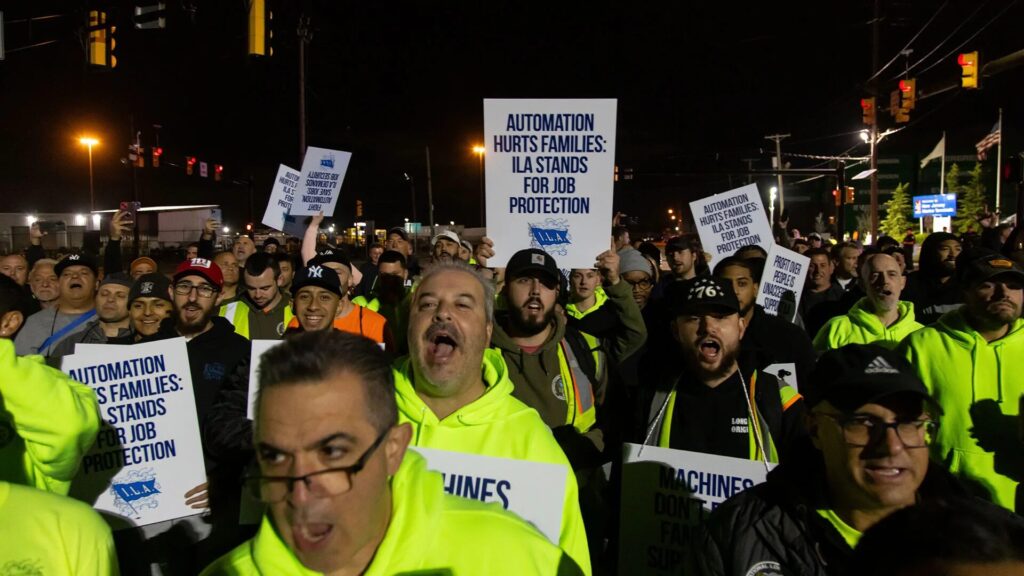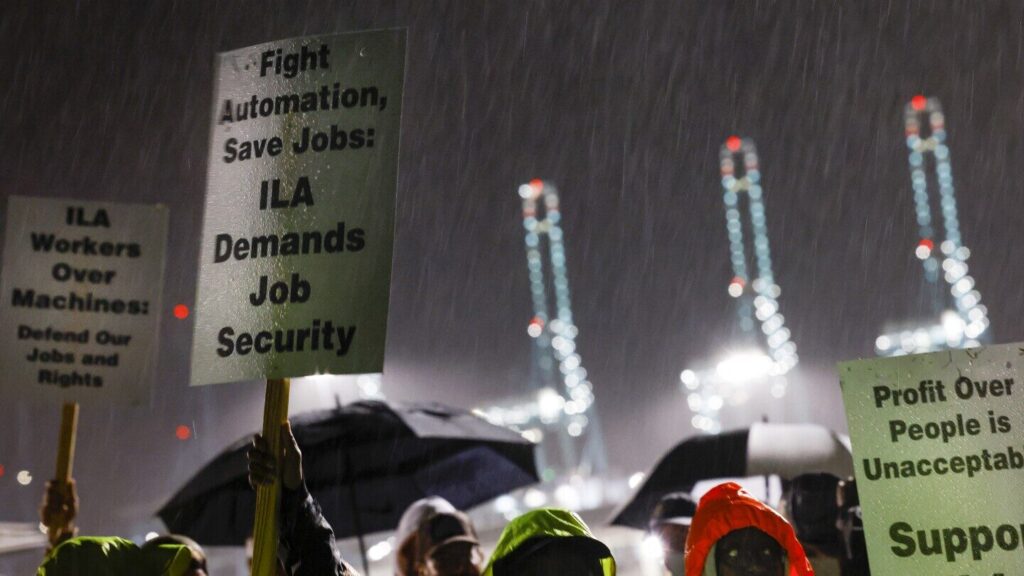
Experts indicate that an extended strike by US port workers could potentially trigger a new surge in freight-driven inflation.
The strike, occurring at all 36 significant ports along the US east and Gulf coasts, marks the first instance since the 1970s, attributed to an inability to reach consensus on new collective agreements for the upcoming six-year period.
The International Longshoremen’s Association (ILA) union is not only contesting compensation but is also seeking assurances regarding port automation, which it claims poses a risk to employment for its 45,000 members.
The United States Maritime Alliance (USMX) employer group reported that it made a “final” offer worth close to 50% over the course of the contract, but the union rejected this offer.
Harold Daggett, the leader of the ILA, informed reporters at the onset of the strike early Tuesday: “We are ready to engage in this struggle for as long as required, remaining on strike for whatever duration necessary to secure the wages and safeguards against automation that our ILA members rightfully deserve.”.
There are currently no scheduled discussions between the union and the employer group.
JP Morgan estimates that the strike will incur a cost of $5 billion per day to the US economy.
Fifty percent of the nation’s maritime freight operations are impacted, and the queue of vessels awaiting unloading continues to increase.
According to data sourced from Everstream Analytics, over 38 container vessels were recorded waiting at anchor outside ports as of Tuesday evening.

Shipping costs had already emerged as a significant issue prior to the onset of the strikes, with an increase exceeding 300% observed in early 2024 for transit from Asia to Europe.
Attacks from Iran-backed Houthi rebels in Yemen have led to significant disruptions for vessels in the Red Sea, necessitating goods to reroute around Africa. This has resulted in extended journey times, often exceeding two weeks, and has persisted for nearly a year.
The recent S&P Global Manufacturing PMI report for the UK indicated that factory gate input cost inflation has reached a 20-month peak.
The increase in costs associated with importing goods was primarily responsible for this trend, as indicated in the report, which also noted that manufacturers have responded by raising their prices to offset these expenses.
The US National Retail Federation has reacted to the strike by urging President Joe Biden to leverage federal authority concerning critical infrastructure to terminate the action, cautioning that it may lead to “devastating consequences” for the economy.
The White House has encouraged the shipping sector to reach a resolution and has, to this point, declined to take action.
Analysts suggest that the impending presidential election will necessitate action on his part, particularly if importers’ contingency plans do not mitigate shortages and result in price escalations.
Ipek Ozkardeskaya, a senior analyst at Swissquote Bank, commented on the dispute: “It will lead to supply disruptions and heighten price pressures ahead of the November presidential elections.”
“It is evident from the outset that the negotiations are unlikely to conclude swiftly, as the Biden administration appears disinclined to engage.”